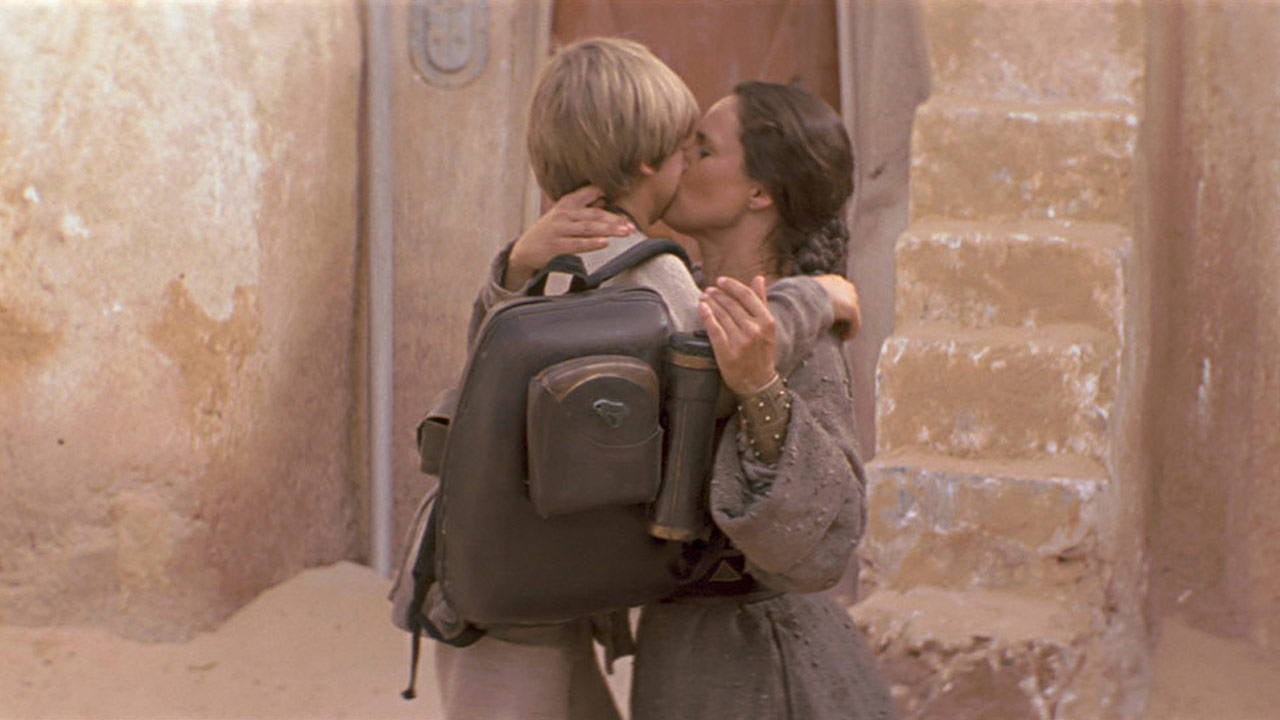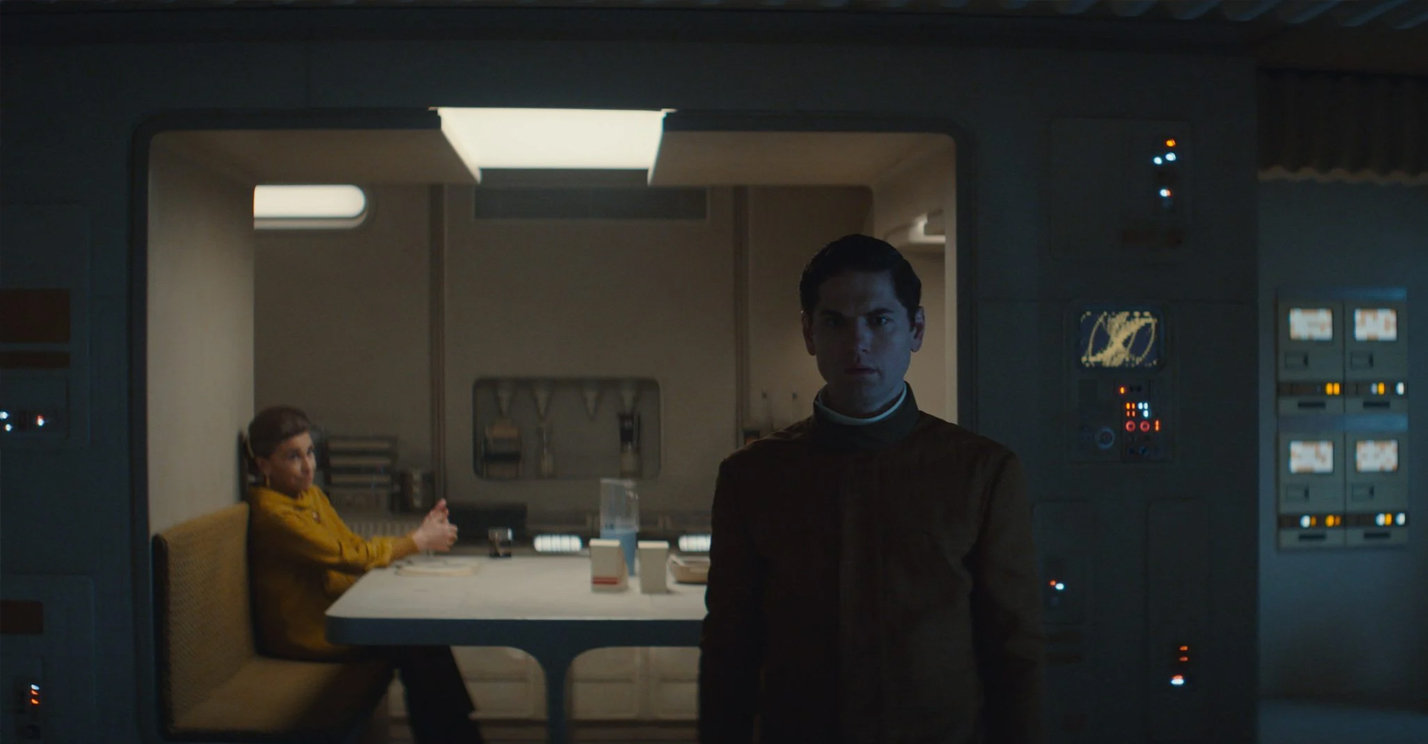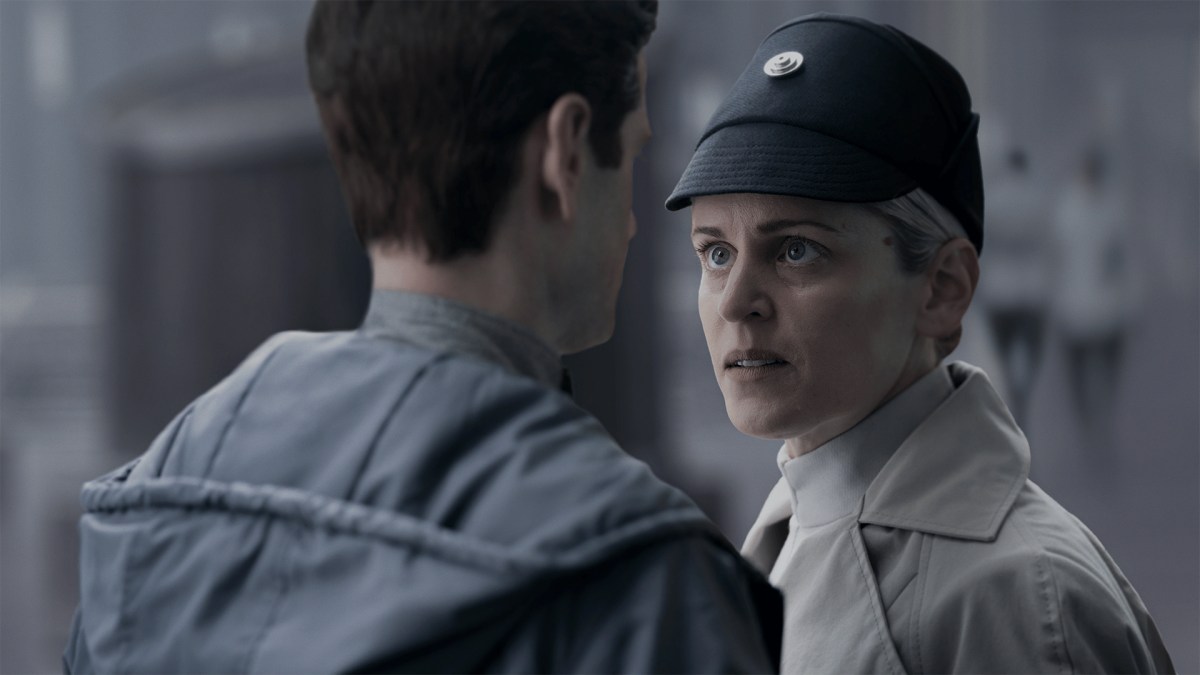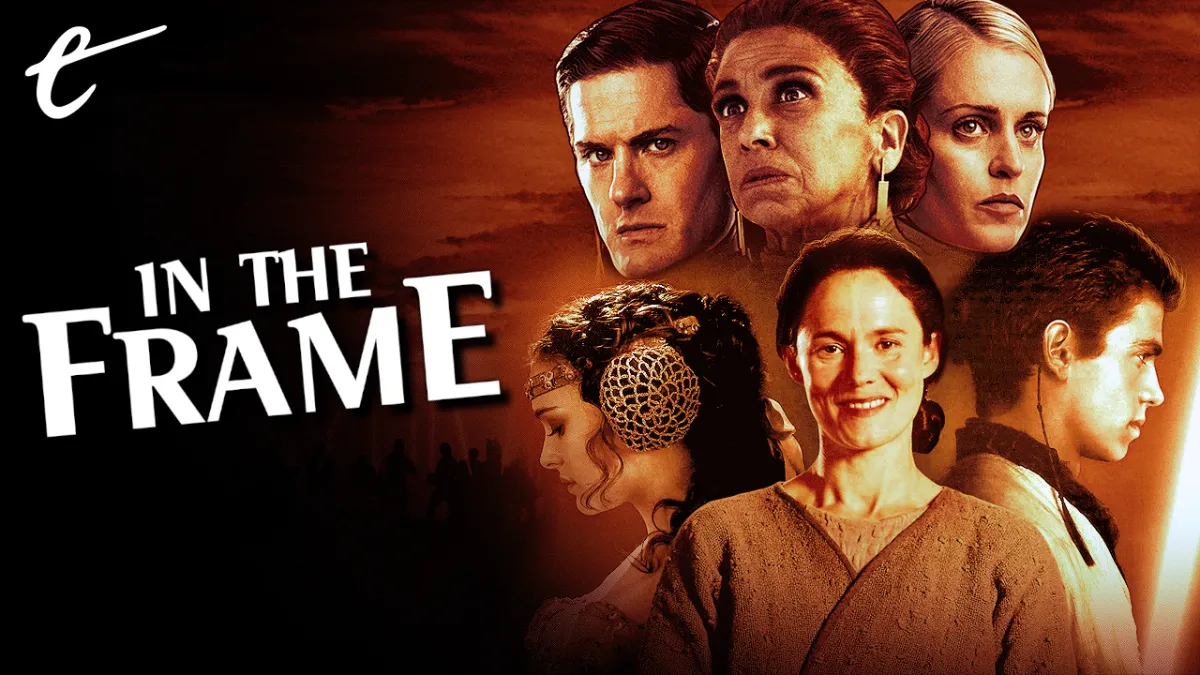This article contains minor spoilers for Andor, but mostly it’s an Oedipal Star Wars discussion of Anakin Skywalker and Syril Karn having weird hang-ups involving their mothers.
It is something of a cliché to describe Star Wars as a story about fathers and sons. After all, one of the most famous lines in the franchise, after “May the Force be with you,” is the declaration, “I am your father.” However, this focus can obscure the equally weird maternal relationships that play across the epic saga.
The term “Oedipal” is often thrown about in discussions of Star Wars. Indeed, nearly two years before The Empire Strikes Back revealed that Darth Vader (David Prowse, James Earl Jones) was Luke Skywalker’s (Mark Hamill) father, Andrew Gordon made a point to note in an issue of Literature/Film Quarterly that writer and directed George Lucas had worked very hard “to make this essentially Oedipal fable guilt-free.” Fathers die, but sons don’t always have to be the ones to kill them.
The Star Wars franchise is permeated with charged father and son relationships. Luke arguably looks for a surrogate father in Obi-Wan Kenobi (Alec Guinness). Luke risks everything in Return of the Jedi in the hope that his father can be redeemed. In a reversal of this dynamic, Kylo Ren (Adam Driver) murders his own father, Han Solo (Harrison Ford), in The Force Awakens. However, a father’s love perseveres. In The Rise of Skywalker, it is Han’s ghost that pushes Kylo towards redemption.
Jere Hester joked that this Oedipal anxiety might even extend to the conflicted relationship that some fans had with George Lucas. Of course, this was a very male-dominated world, with Luke’s sister, Leia (Carrie Fisher), being the only major female character. As Stephen Marche wryly noted, “No mother appeared in Star Wars, The Empire Strikes Back, or Return of the Jedi. Although it did turn out that Luke kissed his one surviving female relative, an approximation.”

After all, Oedipus Rex is a story of warped paternal and maternal relations. Of course, there was a lot of feminine imagery in the original Star Wars trilogy, particularly in The Empire Strikes Back, with the cast spending a lot of the film in caves of one form or another and Luke being enwombed inside a dead tauntaun. Still, outside of exceptions like Lady Proxima (Linda Hunt) in Solo: A Star Wars Story, monstrous mothers are decidedly less common within the franchise than monstrous father figures.
This is part of what makes Andor so fascinating. Low-level bureaucrat Syril Karn’s (Kyle Soller) plot thread is heavily focused on the dysfunctional relationship that he has with his domineering mother, Eedy (Kathryn Hunter). It is a plot thread that feels largely metaphorical, with Eedy standing in for the Empire as a controlling force interfering in the lives of its subjects. Eedy bullies her son. She spies on him. She searches his room without permission.
Eedy is the closest thing the show has to a character like Emperor Palpatine (Ian McDiarmid), a comparison that makes a surprising amount of sense given that Hunter’s most high-profile role to this point was playing the Weird Sisters in Joel Coen’s The Tragedy of Macbeth. Syril’s father is entirely absent, so Eedy has asserted total control of his life. She’s a creepy and thoroughly unpleasant figure that has gripped her son so tightly as to warp his very identity.
There is a decidedly Oedipal subtext to Syril’s fixation on Imperial Security Bureau Supervisor Dedra Meero (Denise Gough). Syril first encounters Meero when he is pulled in for an interrogation. Meero chides him for his fixation on Cassian Andor (Diego Luna) and warns him against pursuing the thread any further. Syril immediately imprints on this authoritative and dominant woman, to the point that he starts stalking her and claiming that she showed him “life was worth living.”

However, Andor isn’t necessarily breaking new ground for the franchise. While the original Star Wars trilogy was built around a central dynamic between an estranged father and son, George Lucas’ prequel trilogy was arguably just as fixated on the other half of that Oedipal dynamic. These three films are often overlooked or ignored in discussions of the larger Star Wars franchise, which is a shame. They may be deeply flawed movies, but they are fascinating cultural objects.
Of course, fathers get a lot of space in the prequel trilogy. The franchise has been much more interested in Leia’s adoptive father Bail Organa (Jimmy Smits) than in his wife Breha Organa, who was played by Rebecca Jackson Mendoza in The Revenge of the Sith and recast as Simone Kessell in Obi-Wan Kenobi. Similarly, Luke’s adoptive father Owen Lars (Joel Edgerton) has received a lot more attention than his adoptive mother Beru Whitesun (Bonnie Piesse).
The prequels also focus on absent fathers. Anakin Skywalker (Jake Lloyd, Hayden Christensen) is introduced as an immaculate conception. It is implied he was conjured into being by the Sith Lord Darth Plagueis. Anakin spends the films looking for a surrogate father. Qui-Gon Jinn (Liam Neeson) whisks Anakin away to Coruscant and promptly dies. Obi-Wan Kenobi (Ewan McGregor) is too young to be the father Anakin needs. He eventually falls under the influence of then-Senator Palpatine.
That said, it should be noted that Anakin’s two surrogate father figures after Qui-Gon aren’t particularly paternal. In Attack of the Clones, Anakin describes Obi-Wan as “the closest thing (he has) to a father,” but Obi-Wan’s energy is more like that of a teasing older brother, another apprentice of Qui-Gon. Similarly, with his erudite manner and appreciation of the fine arts, Palpatine is presented as something akin to an “an old queen” seducing a younger partner in the manner of antiquity.

Still, the prequels are more acutely aware of absent mothers than the original films. This is perhaps most obvious in Attack of the Clones, which fixates on an all-male army created through cloning at the behest of male authorities, ostensibly Jedi Master Sifo-Dyas, but secretly Count Dooku (Christopher Lee) and Palpatine. These clones are all derived from Jango Fett (Temuera Morrison), who insists on his own motherless clone Boba (Daniel Logan) as part of his payment.
Like all cloning stories, Attack of the Clones is an obvious riff on the sort of reproductive horror codified by Mary Shelley’s Frankenstein, a horror story about what happens when men try to assert control of the reproductive process. While he is more famous as Dracula, Christopher Lee had played Frankenstein’s monster in The Curse of Frankenstein. The clone army is horrific, but is it that much worse than the way that the Jedi just steal generations of children away from their mothers?
Anakin is defined by Qui-Gon’s decision to take him away from his mother, Shmi (Pernilla August). He never fully recovers from it. More than that, his romantic relationship with Padmé Amidala (Natalie Portman) is consciously framed as his attempt to find a surrogate mother. After all, Padmé is quite a bit older than her lover, first meeting him when he was a child in The Phantom Menace. Anakin imprints on her almost immediately, asking, “Are you an angel?”
Attack of the Clones and Revenge of the Sith suggest that Anakin and Padmé are frozen in that first meeting from The Phantom Menace. When they reunite on Coruscant in Attack of the Clones, Padmé tells the young trainee, “Ani, you’ll always be that little boy I knew on Tatooine.” When Anakin is assigned as Padmé’s bodyguard, the two make a literal retreat into their shared past, visiting Naboo and then Tatooine, in the opposite order of their progression through The Phantom Menace.

It is clear that Anakin sees Padmé as a stand-in for his lost mother. When first assigned to protect Padmé, Anakin confesses to Obi-Wan that he has been thinking about his mother. “I don’t know why I keep dreaming about her,” Anakin admits. “I’d much rather dream about Padmé.” Later in the film, he concedes that he also dreams about Padmé, telling her, “You’re exactly the way I remember you in my dreams.” The two women are clearly connected in Anakin’s mind.
Indeed, Anakin’s time with Padmé on Naboo and their budding romance seems to reignite his connection to Shmi. He has a nightmare about her experiences on Tatooine. “I saw my mother,” he admits. He makes another direct comparison between the two women. “I saw her as clearly as I see you now.” The two travel to Tatooine together, discovering that Shmi has been abducted and tortured by the Tusken Raiders. She dies in Anakin’s arms, shortly before he marries Padmé.
Revenge of the Sith commits to this doubling of mother and wife. Anakin is confronted with troubling nightmares about Padmé, “like the ones (he) used to have about (his) mother, just before she died.” Palpatine is able to tempt and corrupt Anakin by promising to help him save Padmé and in doing so redeem his failure to save his mother. To Anakin, Padmé and Shmi are the same person. “I won’t lose you the way I lost my mother,” he vows.
Oedipus Rex is the tragedy of a man who murders his father and marries his mother. In the original Star Wars trilogy, Darth Vader kills two of his surrogate fathers, Obi-Wan Kenobi and Emperor Palpatine, before dying so that his own son might live. The prequel trilogy explores the other half of this equation, presenting a man whose absent mother casts so long a shadow that his wife becomes little more than a surrogate.
This is a dynamic often overlooked in discussing the Star Wars franchise as an epic saga about parents and children. There’s a tendency to fixate on Star Wars’ “bad dad” archetypes, but the saga also has some similarly warped maternal dynamics as well. Andor’s Syril and Eedy Karn are part of a rich history with the Star Wars franchise that goes all the way back to Anakin Skywalker.






Published: Nov 4, 2022 11:00 am